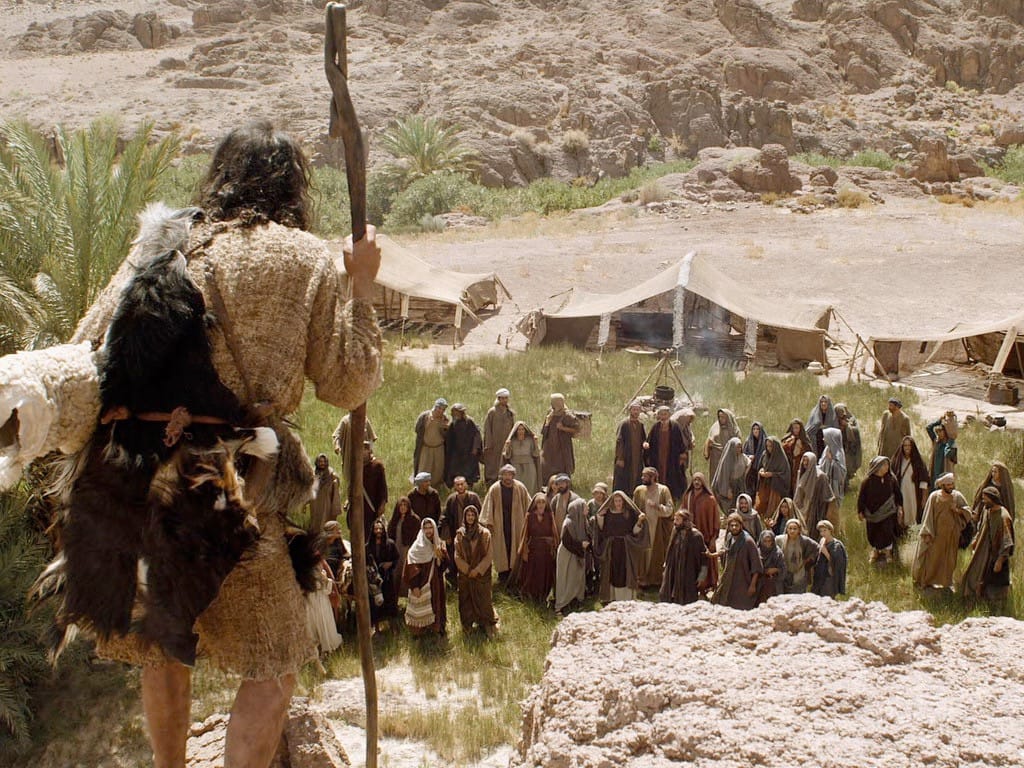John the Baptist
Every tree that does not bear good fruit is cut down and thrown into the fire.

Key words
- Persist: to continue to do something in a determined way even when facing difficulties or opposition
Although the meeting had ended, she persisted in trying to question the mayor.
- Skepticism: doubt that something is true or useful
The government proposal faced widespread skepticism.
- At hand: near in time or position
The time to act is at hand.
- Herald: to make something publicly known, especially by celebrating or praising it
The president's speech heralds a new era in foreign policy.
- Imminent: (esp. of something unpleasant) likely to happen very soon
The storm is imminent.
Read the article to find the answers
- How many centuries were there between the Old Testament and the New Testament?
- Which religious schools emerged during this period of time?
- What was Zacharias told about his son, John?
- What did John the Baptist say about the axe?
After Malachi
There's a gap of four centuries between the Old Testament and the New Testament. During this time, the Jewish people were under the rule of various powerful empires such as Persia, Greece, and Antiochus IV Epiphanes. There were no divine messages or prophets during this time.
Many Jews settled in the countries surrounding Israel. They took with them their synagogue worship and the Greek translation of the Old Testament, and established religious schools based on the teachings of the Pharisees and Sadducees.
Throughout this period, the hope of a Messiah who would deliver Israel from foreign domination and establish a Kingdom of Heaven persisted. The popular expectation of this King, however, was often worldly. The moral condition of the people had not improved, and the original Jewish religion was declining because of the rituals of the Pharisees and the skepticism of the Sadducees.
Nevertheless, the faithful waited eagerly for salvation. Then a new prophet arose preaching, "Repent, for the Kingdom of Heaven is at hand!"
John the Baptist
Before John was born an angel announced to his father, Zacharias, that John would go before the Messiah "in the spirit and power of Elijah". Jesus Himself said, "he is the Elijah."
John's mission was to herald the coming Messiah who would judge Israel. John's message warned of imminent destruction. In his warnings to the Pharisees, Sadducees, and the crowds going to his baptism, John urges them to "flee from the coming wrath." He describes a situation in which "the axe is laid to the root of the tree" highlighting the imminent judgment and destruction of "Every tree that does not bear good fruit."
These warnings of John the Baptist were urgent and intense words with a specific and immediate relevance to the people living at that time. The Jewish nation was facing its final test, with the second Elijah serving as the herald of the "great and dreadful day of the Lord." If they did not stop sinning, the doom predicted by Malachi would inevitably and swiftly follow.
John the Baptist and Jesus
Before John the Baptist was arrested, Jesus was teaching, performing miracles, and gaining followers. But after John's arrest, Jesus entered a new phase of His public ministry. "From that time Jesus began to preach and to say, Repent, for the Kingdom of Heaven is at hand." These are the same words with which John the Baptist began his ministry. Both Jesus and John told that generation of Jews to stop sinning because judgment and the coming of the Kingdom of Heaven were imminent.
Discussion questions
- Do you have any questions about any of the vocabulary or grammar in this article?
- Do you know the Bible passage quoted at the top of this article?
- Do you know the story of Elijah and Ahab?
- Do you know what happened to John the Baptist?

Book a Lesson
Improve your English language communication skills by practicing with a qualified and experienced native speaker.





